 Research Update
Research Update
10
OctOn the afternoon of September 29, 2024, the first Jiangshan Forum was successfully held at Renmin University of China. The forum focused on the theme of "National Strategy for Chinese Path to Modernization", aiming to adhere to President Xi's important discourses on the goal of building a great country and national rejuvenation. It emphasized that "the country is the people, and the people are the country," and aimed to build a high-end, comprehensive platform for multi-party participation, interactive communication, in-depth research, and policy recommendations. The forum engaged in ongoing, in-depth, and multi-dimensional research and exchanges centered around "Chinese-style modernization," fully elucidating and widely promoting the theories and practices of this modernization.
The forum was hosted by Renmin University of China and specifically organized by the National Academy of Development and Strategy of the university. Five parallel panels were coordinated by the School of Population and Health, the School of Labor and Human Resources, the School of Philosophy, the School of Ecological Environment, and the School of International Studies. Over 60 leaders and renowned experts from various universities and research institutions across the country were invited to explore the rich practical significance, theoretical implications, and academic value contained in the forum's theme, interpreting its original intention and mission.
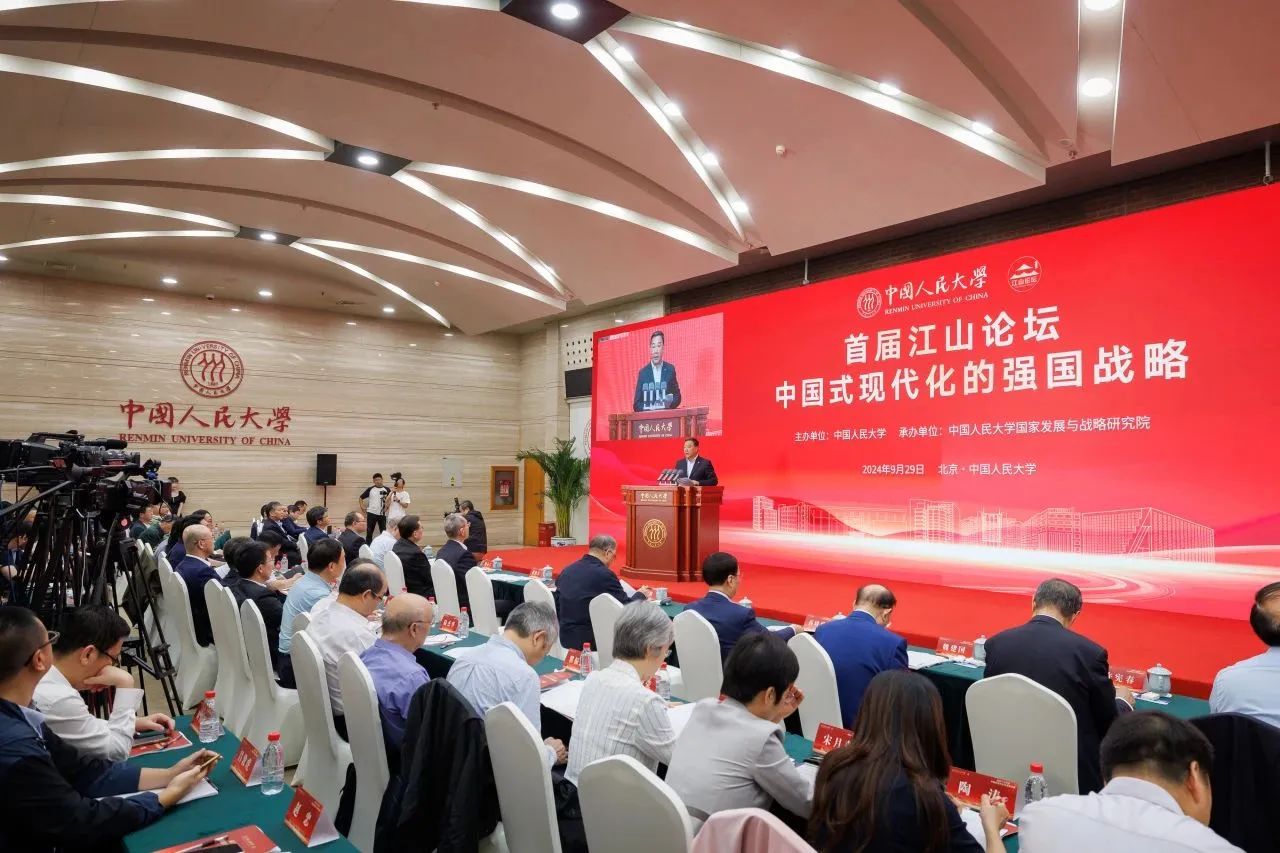
Zhu Yongxin, Vice Chairman of the National Committee of the Chinese People's Political Consultative Conference and Executive Vice Chairman of the Central Committee of the China Democratic League, and Zhang Donggang, Party Secretary of Renmin University of China, delivered opening remarks, while Lin Shangli, President of Renmin University of China, hosted the session.
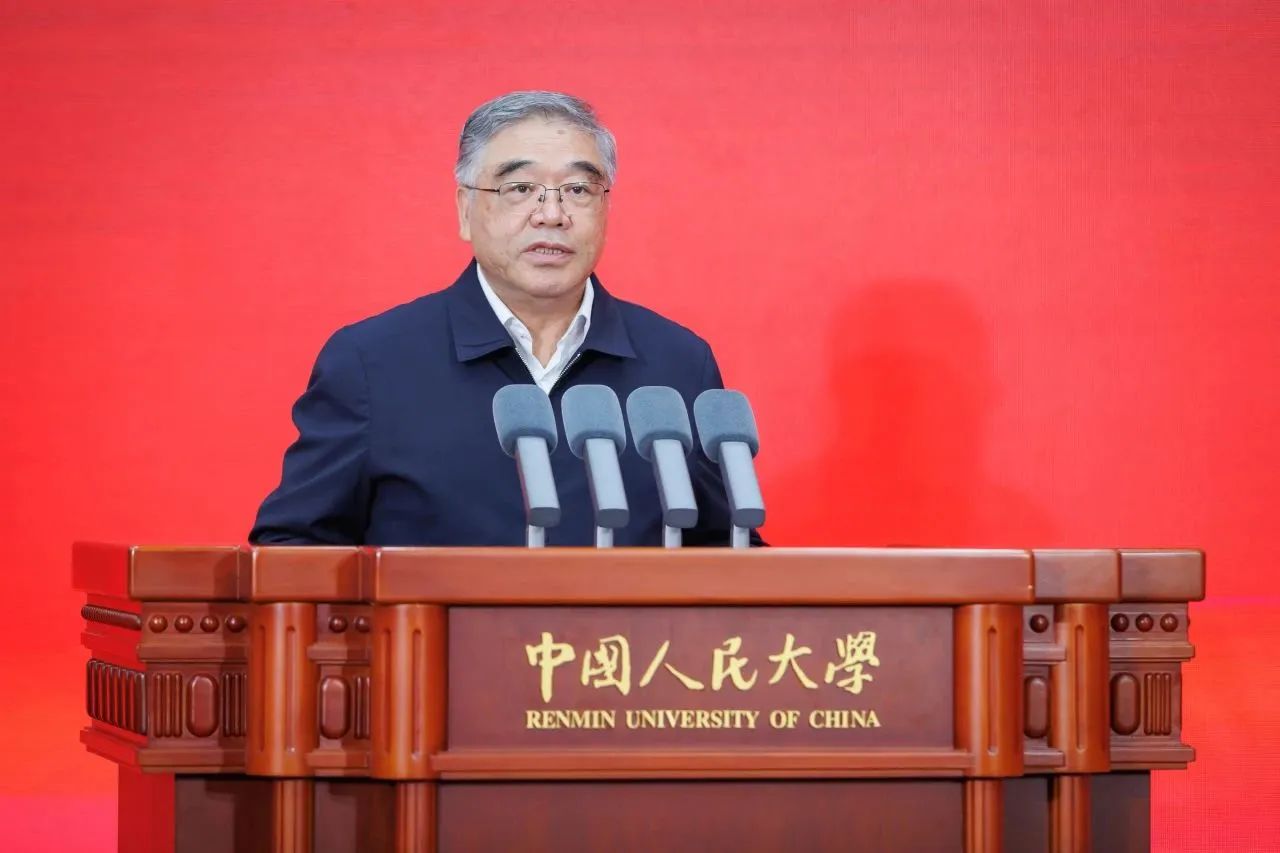
Zhu Yongxin emphasized that adhering to a people-centered approach is a central logical thread of China's modernization strategy and the ultimate value of Chinese-style modernization. "The country is the people, and the people are the country." President Xi Jinping's important remarks profoundly reveal the close bond between the Communist Party of China and the people, providing fundamental adherence and action guidelines for advancing Chinese-style modernization. Upholding a people-centered approach is a core concept of Xi Jinping's governance and an essential characteristic and source of strength of Chinese-style modernization. It highlights the fundamental political position that our Party must firmly uphold in promoting and developing socialism with Chinese characteristics in the new era, reflecting the socialist nature of Chinese-style modernization, and fully demonstrating the nature, purpose, and mission of our Party. Zhu Yongxin emphasized the need to deeply study and implement the spirit of the Third Plenary Session of the 20th CPC Central Committee, treating the inaugural "Jiangshan Forum" as a new starting point for jointly discussing Chinese-style modernization. He called for collaboration and collective efforts to build a high-end, comprehensive platform for multi-party participation, interactive communication, in-depth research, and policy consultation, contributing wisdom and strength to fully interpret and widely promote the theory and practice of Chinese-style modernization!
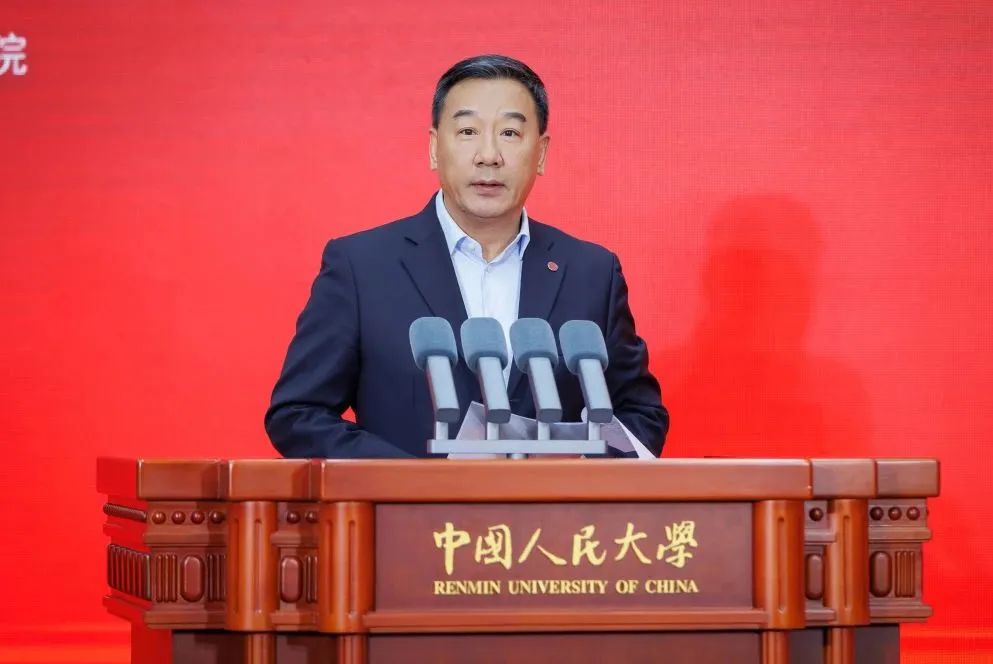
Zhang Donggang stated that on the occasion of the 75th anniversary of the founding of New China, Renmin University of China held the first "Jiangshan Forum" to explore the ""National Strategy for Chinese Path to Modernization". The forum aims to deeply study and implement the spirit of the 20th National Congress of the Communist Party and the Third Plenary Session of the 20th Central Committee, continuously deepen the systematic theoretical research, interpretation, and promotion of Chinese-style modernization, and answer the "original aspiration" of "The people are the country," injecting strong momentum into Chinese-style modernization. To deepen theoretical research on Chinese-style modernization, we must base it on the Party's century-long struggle, profoundly clarify the historical inevitability of Chinese-style modernization; adhere to the "six musts," promoting the formation of a scientific, holistic, and systematic theoretical innovation system; construct recognizable concepts and original theories, refining a modernization theory system with distinctive Chinese characteristics; and create a new form of human civilization, providing a Chinese model and solution to promote the modernization process of humanity and the flourishing of world civilization. We look forward to experts and scholars using this forum as a platform to continuously write a new chapter in the modernization of Marxism in China, injecting strong power into advancing the great rejuvenation of the Chinese nation through Chinese-style modernization.
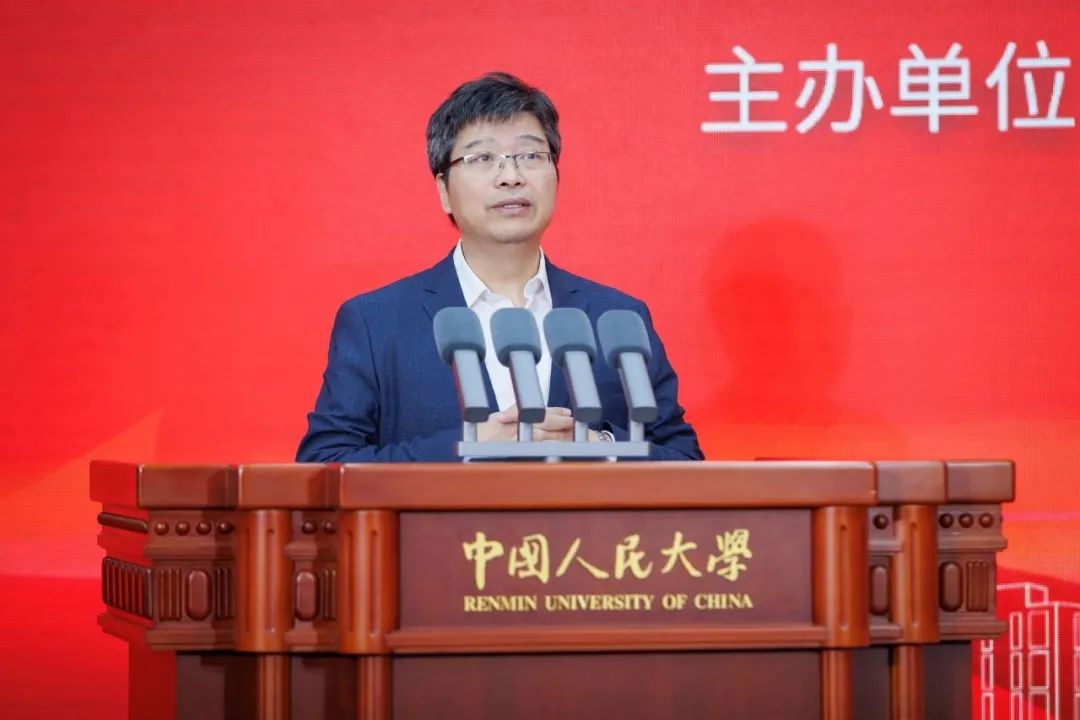
Lin Shangli, while moderating, emphasized that on the new journey, we must firmly uphold the fundamental position that "the country is the people, and the people are the country," consistently adhere to the people-centered development philosophy, deeply understand the trends of human development and progress, and actively respond to the common concerns of people around the world, contributing to solving the common problems faced by humanity. He hopes we can work together, unite our efforts, and strive forward by exploring the theoretical connotations and practical paths of Chinese-style modernization with a focus on "people-centered" principles. We should deeply comprehend China's responsibility in "promoting the building of a community with a shared future for humanity and creating a new form of human civilization," jointly answer the questions of China, the world, the people, and the era, and showcase the Chinese path, governance, and rationale, contributing to the comprehensive promotion of strong nation-building and the great rejuvenation of the nation.
Prominent speakers included Lin Yifu, Director of the Institute of New Structural Economics at Peking University; Gao Peiyong, Academician of the Chinese Academy of Social Sciences and former Party Secretary of the University of Chinese Academy of Social Sciences; Chen Xiaogong, former Deputy Director of the Central Foreign Affairs Office and former Deputy Commander of the Air Force; Wei Jianguo, Vice Chairman and Executive Deputy Director of the China Center for International Economic Exchanges and former Vice Minister of Commerce; Yan Wenbin, former Vice President and Party Member of Xinhua News Agency; and Professor Xu Xianchun, a statistician, who delivered keynote speeches.
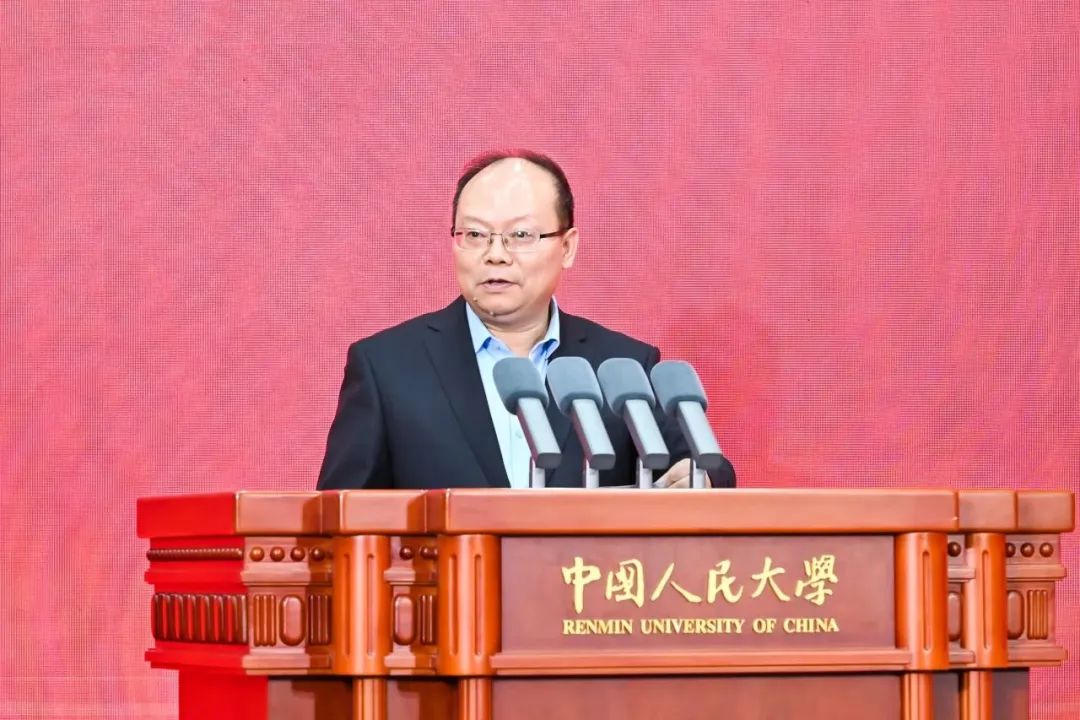
The keynote speech at the forum was hosted by Wang Yi, a Standing Committee Member of the Party Committee and Vice President of Renmin University of China.
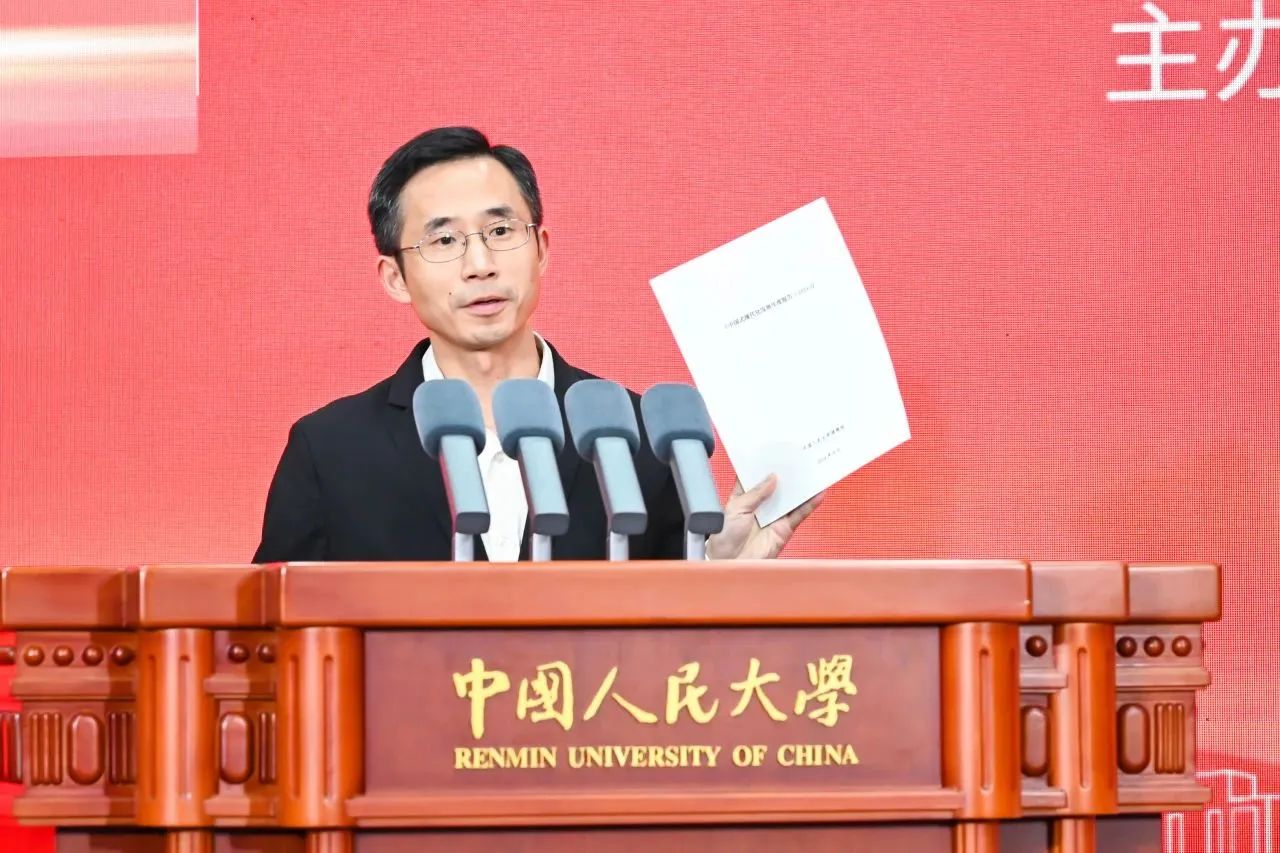
The forum released the research findings of the Renmin University research team in the "Annual Report on the Development of Chinese Path to Modernization (2024)", presented by Professor Liu Qing, Deputy Director (acting) of National Academy of Development and Strategy at the University. The report consists of ten chapters, beginning with an introduction to the Party's central tasks and the timeline for Chinese-style modernization in the new era, serving as a fundamental benchmark for understanding and assessing the overall process of modernization. The second part reviews the various theoretical dilemmas and real challenges faced by Western modernization. The third part elaborates on the basic theoretical connotations and distinct characteristics of Chinese-style modernization. The fourth part provides a comprehensive evaluation and international comparison of Chinese-style modernization. Parts five to nine assess progress in five distinctive areas, discuss challenges and policy recommendations, and include case analyses. The tenth part addresses the global significance of Chinese-style modernization and offers policy suggestions.
Five parallel panels were held simultaneously, focusing on themes such as "modernization with a massive population," "common prosperity for all," "harmonization of material and spiritual civilization," "harmonious coexistence between humans and nature," and "modernization through peaceful development," with experts and scholars engaging in in-depth discussions on these topics.
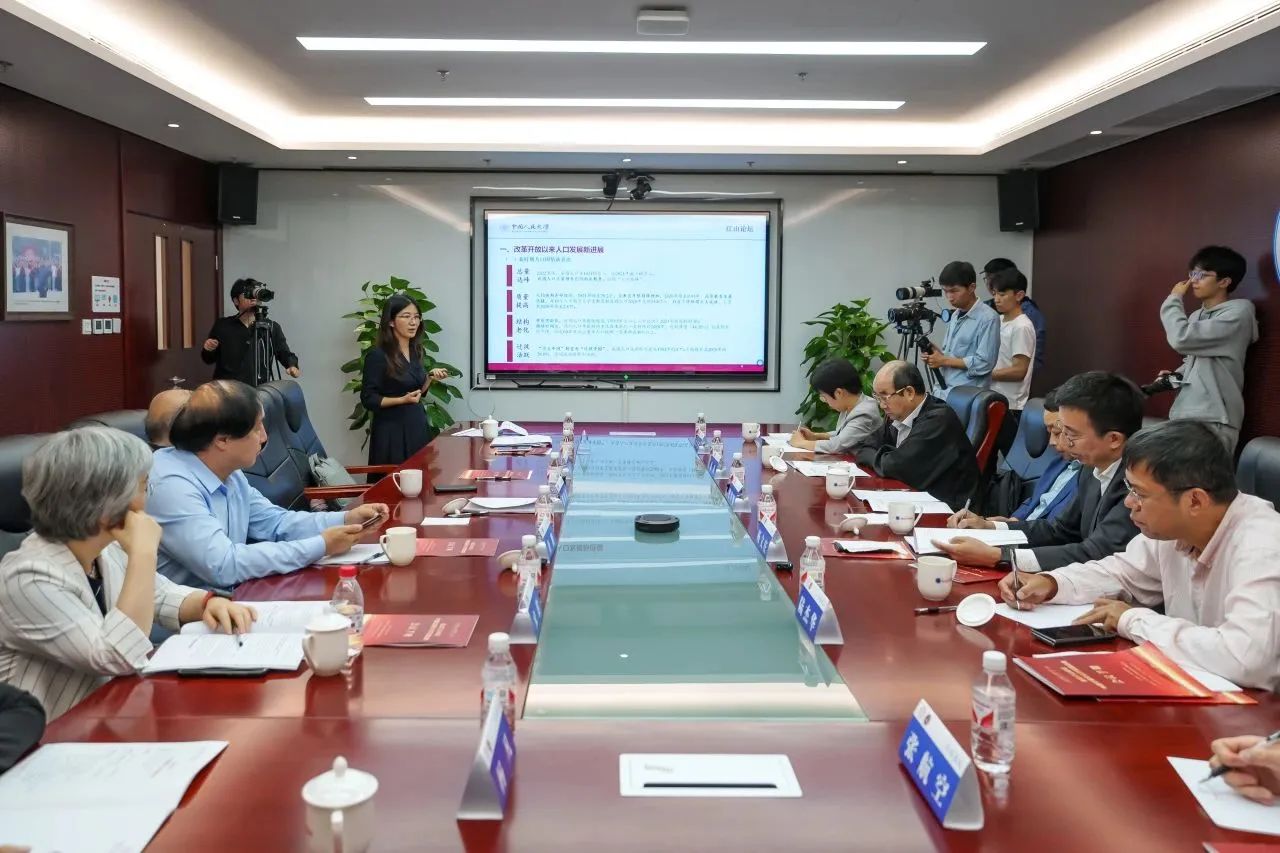
Panel One was organized by the School of Population and Health of RUC.
This session focused on analyzing how China, as the world's largest developing country, can effectively address the challenges posed by its vast population during the modernization process, exploring a unique path to modernization that aligns with China's national conditions. It delved into the practices and experiences of Chinese-style modernization in areas such as employment, social security, and coordinated urban-rural development.
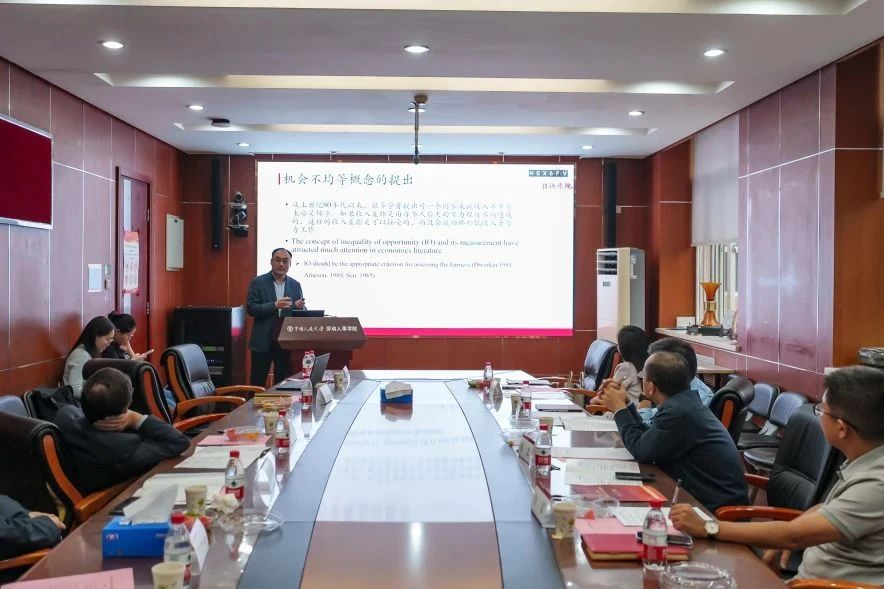
Panel Two was organized by the School of Labor and Human Resources of RUC.
This session detailed the efforts and achievements of China in promoting common prosperity for all, focusing on practical pathways. It explored how policies related to income distribution, social welfare, and regional coordinated development can achieve a harmonious unity of economic growth and social equity, creating a shared modernization model.
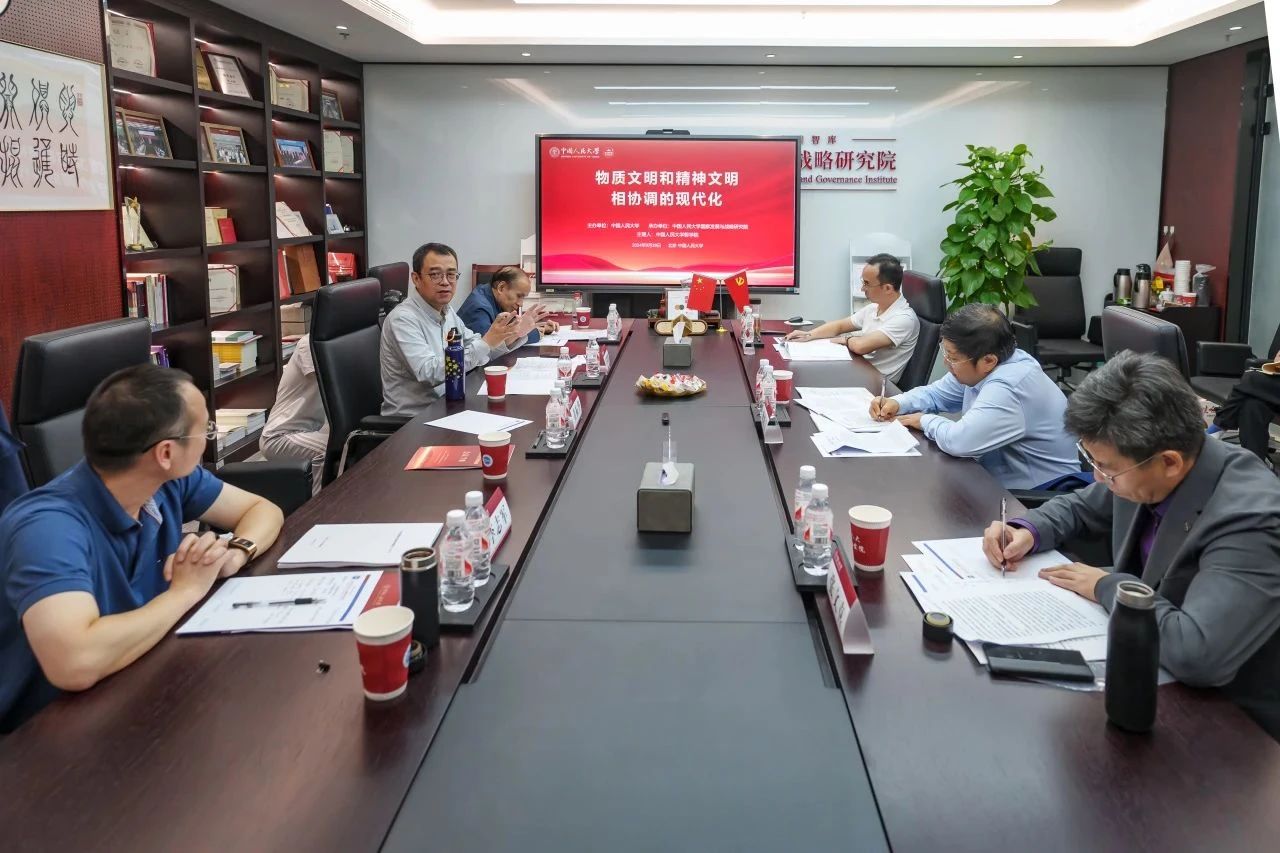
Panel Three was organized by the School of Philosophy of RUC.
This session emphasized the modernization that harmonizes material and spiritual civilization. It discussed successful experiences in cultural construction, educational enhancement, and the building of spiritual civilization, showcasing China's comprehensive achievements in improving the quality of life for its people, enhancing social morality, and promoting cultural prosperity.
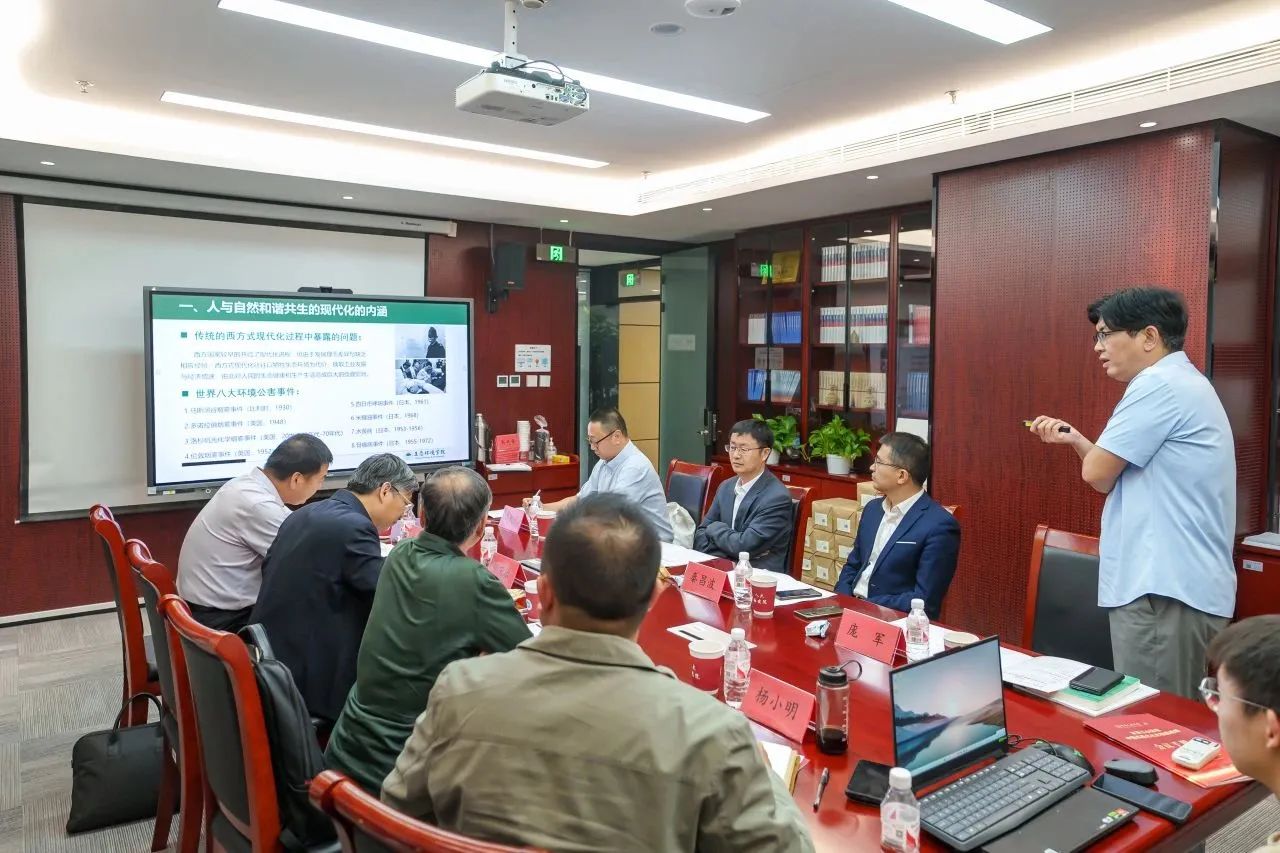
Panel Four was organized by the School of Ecological Environment of RUC.
This session focused on how China consistently adheres to the principles of ecological priority and green development throughout its modernization process. By deeply interpreting the practice of ecological civilization construction in China, it showcased the country's experiences in ecological protection and green, low-carbon development, and explored the unique contributions of Chinese-style modernization to building a beautiful China and achieving harmonious coexistence between humans and nature.
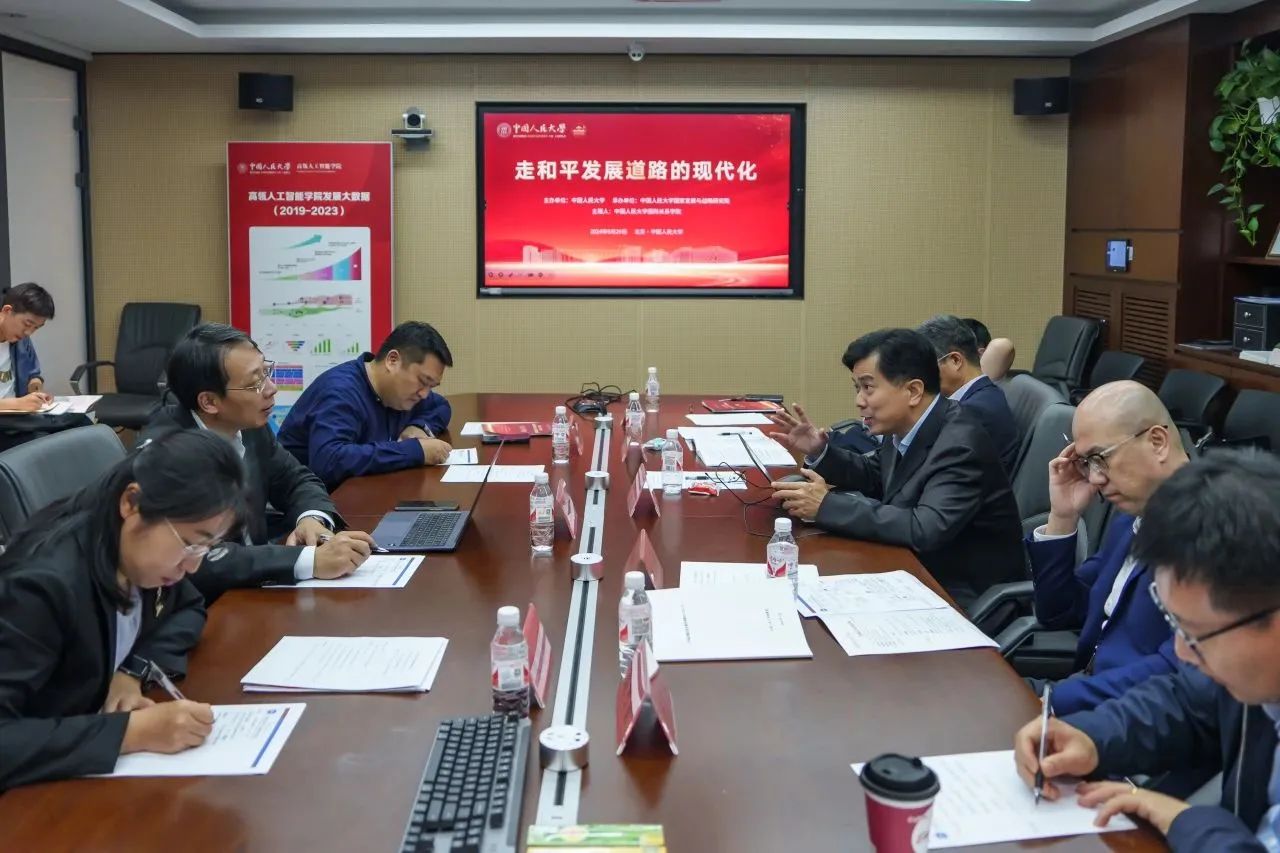
Panel Five was organized by the School of International Studies of RUC.
This session examined how China maintains a peaceful development path during its modernization process, advocating for a win-win globalization approach and avoiding modernization at the expense of other countries' interests. Through an analysis of China's foreign policy and global cooperation, it demonstrated the positive role of Chinese-style modernization in promoting world peace and collaboration.
This forum leveraged the advantages of Renmin University and the National Academy of Development and Strategy as a national high-end think tank to analyze the theoretical connotations and significant characteristics of Chinese-style modernization from multiple dimensions. It interpreted the important idea that "the country is the people, and the people are the country," resulting in a systematic research report that meaningfully explored the development of Chinese-style modernization and its far-reaching impacts on the global modernization process. The forum encompassed political, economic, and cultural insights, along with micro and multi-dimensional case analyses, providing a novel perspective on understanding the development of Chinese-style modernization.
The "Jiangshan Forum" is one of the key high-level brand forums established by Renmin University of China. It invited over 60 renowned experts and scholars from the political, academic, think tank, and media sectors in China to participate in discussions, aiming to provide innovative ideological support for national strategic development. By constructing a platform for diverse communication and intellectual dialogue, it sought to enhance the world’s understanding of China's modernization in governance. More than 20 main media outlets covered the event.
(Translated by ZHANG Yuqing; Proofread by YANG Fanxin)